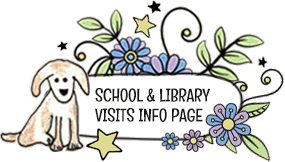Happy Poetry Friday! I’m excited about today’s interview.
A few years ago, my PitchWars mentor, Joy McCullough-Carranza, was working with a new mentee on another middle grade novel-in-verse. Joy asked me to read the manuscript and share some feedback.
This story has two happy endings! The manuscript Joy sent me became Ellie Terry’s debut novel, FORGET ME NOT. And then Joy sold her own young adult verse-novel, BLOOD/WATER/PAINT which will be out in 2018.
Congratulations on your debut, Ellie! Tell us about FORGET ME NOT. What is it about the story and characters that led you to write the book as poetry?
FORGET ME NOT was released last month from Feiwel & Friends/Macmillan. It is the story of a girl named Calliope June who is desperate to hide her Tourette syndrome from her new school, while trying to convince her mother not to move them yet again, especially after she makes friends with Jinsong, the boy next door, who also happens to be the school’s popular student body president. It is told in two points of view. The MC, Calli’s, POV is in free verse and her neighbor Jinsong’s POV is in regular prose.
I did not set out to write the novel in (mostly) poetry. When I first began drafting Calli’s story, I heard her voice a certain way and I typed it into the computer that same way. When I looked it over, I realized I was writing a verse novel. Although I’d had plenty of experience writing free verse poetry, the thought of combining poetry with an actual PLOT really scared me. I’d never done it before. But I knew it was the way the story needed to be written.
Have you ever written a full or partial draft of one of your verse novels in prose (or vice versa), only to decide to switch? How did you go about making that change? What were some of your clues that you needed to rethink the form?
Yes! Both with my debut novel and a manuscript I am currently working on. With FORGET ME NOT, both Calli and Jinsong’s POV were originally in verse. But in order to differentiate between the two voices, I switched Jinsong’s to regular prose. (And I’m REALLY glad I did. His voice really came alive after that switch!) Besides wanting to differentiate between the two voices, Jinsong’s voice in verse felt . . . forced somehow. Stilted, perhaps? Whereas if felt completely natural for Calli.
The all-verse draft was the version I read. I’m excited to see what you did with Jinsong’s voice.
As a first time verse novelist, how was the experience different from writing prose fiction? What draws you to poetry as the backbone of how you tell a story?
My experience writing the verse for FORGET ME NOT felt like a very natural extension of how I feel and think inside my own heart and head. And having been writing poetry nearly all my life, it felt very natural for me and therefor seemed to flow from my fingers a bit easier than writing in prose. In fact, sometimes when I’m having trouble getting feelings out with my prose, I write it in verse first, then switch it over.
I see a similarity between the poems in novels-in-verse and dramatic monologues. Each poem in a verse novel has a character communicating his or her emotions and observations. There is often a realization or shift in thinking that happens in both monologues and in a verse novel’s poems. What do you think about the overlap between a speech for the stage and a poem in a verse novel?
I think the purpose of poetry is twofold:
- To be seen on the page
- To be spoken out loud
Really, you need to do both to get the full experience of a poem. If I may quote the first two lines of a poem I wrote when I was twelve . . . It’s titled, POEMS (really original, huh?) “Poems are meant to be read aloud / over and over again to a crowd.”
Also, as my children and husband will attest, I regularly read my verse out loud over and over again, to test the flow of words and catch bumpy syntax, to make sure the lines are conveying the emotions correctly, and to just enjoy hearing the words spoken aloud. So, I definitely see dramatic monologues and free verse poems as being related. Something like cousins, I imagine.
Most of the middle grade and YA verse novels I have read are contemporary or historical. I’d love to see a fantasy or science fiction novel-in-verse for kids. Do you think the form is flexible enough to stretch into other genres of fiction? Why or why not?
I think verse novels in general seem to be more character driven, rather than plot driven, so that may be one reason why verse lends itself more easily to contemporary and historical fiction. Lots of exploring of character feelings and such and less explosions and intricate conversations. However, I think it can work with fantasy and sci-fi, as long as the writing is good, it just may be slightly trickier to accomplish. I critiqued a friend’s fantasy verse novel a few years ago, and thought it worked very well. I personally would love to see a good fantasy or sci-fi verse novel published! (You hear that readers? Get your pens out and start writing!)
 Thanks for being part of my National Poetry Month project, Ellie!
Thanks for being part of my National Poetry Month project, Ellie!
Ellie Terry writes heartfelt contemporary fiction for middle-grade readers. Her middle-grade debut, FORGET ME NOT, was published March 14, 2017 by Feiwel & Friends, an imprint of Macmillan. She lives in southern Utah with her husband, three kids, two zebra finches, and a Russian desert tortoise.
My series of National Poetry Month interviews with verse novelists continues next week with Margarita Engle.
And we’ve added a bonus interview! Holly Thompson will be here on April 30 to wrap up the series.
Here is the full list of posts:
4/3 Jeannine Atkins, STONE MIRRORS: The Sculpture and Silence of Edmonia Lewis (Find the post here.)
4/6 Caroline Starr Rose, BLUE BIRDS (Find the post here.)
4/10 Leza Lowitz, UP FROM THE SEA (Find the post here.)
4/13 Shari Green, MACY McMILLAN AND THE RAINBOW GODDESS (Find the post here.)
4/17 Annie Donwerth-Chikamatsu, SOMEWHERE AMONG (Find the post here.)
4/20 Ellie Terry, FORGET ME NOT (Find the post here.)
4/24 Margarita Engle, MORNING STAR HORSE and FOREST WORLD (Find the post here.)
4/25 Tamera Will Wissinger, GONE CAMPING (Find the post here.)
4/27 Debut novelist Amanda Rawson-Hill (Find the post here.)
4/30 Holly Thompson, FALLING INTO THE DRAGON’S MOUTH (Find the post here.)
You can find a list of National Poetry Month blog projects at Jama’s Alphabet Soup. And check out this great list of recommended MG verse novels from educator Cassie Thomas at the blog Teachers Who Read.

My dear friend Tabatha Yeatts-Lonske is hosting Poetry Friday this week. To find poetry posts from around the blogosphere, visit The Opposite of Indifference.







I’m like a kid in a candy store with your interviews. I put each one on my Book Wish pinterest page (which, shhhhhh is my middle school library wish list too)
I’m glad you’re enjoying them, Linda. I gave the authors a list of questions, from which they chose their five. It’s interesting to see which questions each person wants to answer.
I love these interviews–I’m adding to my list of books to read and authors to explore with everyone (unless it’s a visit with an old friend).
Thanks, Kay. There are a few books in this series I haven’t read yet. I made a library run yesterday to pick them up.
Congratulations on your debut novel. Ellie. I’m glad that you tackled a topic that will please kids who face that challenge but also to inform others how hard it is. Having a friend join in is great, too. Will look for your book. Thanks Laura for another interesting interview. Perhaps like Ellie’s book, fantasy or sci-fi can be verse/prose to help with the world-building?
That’s a good idea, Linda. If it’s a book about two different cultures, swapping between verse and prose voices would be a great choice.
Sounds like a great way to succeed in creating two distinct voices. I’m writing SF now, but not verse. I’m struggling to have two distinct voices in prose. I will look for your book. We had a Tourette’s cross country runner in the high school here. Must have been a struggle for him.
Hi, Brenda. I’m working on prose in two voices right now. Like my verse novel, I try to work on one voice at a time to help set the two MCs apart. What strategies are you using?
I am loving the 2 happy endings! Nice to meet you, Ellie, and congrats on your book, which I will seek out and read. About SF/futuristic verse novels. I’ve written one. The problem is there is SO MUCH explanation required! Hard to be pull off true poems, every page. But. If I can ever get it to work, it’s going to be awesome. 🙂
That’s exciting, Irene. I can’t wait to hear more about your book!
Thanks for this interesting interview, Laura – I’m adding this book to my summer reading list! I love reading about the writing process, and all it takes to do the work you amazing authors do.
I’m fascinated by the idea of alternating POVs in verse and prose, I imagine that would really help each character stand out as individuals with strong voices!
Another book for my TBR pile! Thanks for the introduction to Ellie and her book and for all of your interviews, Laura. =)
Even briefly meeting Calli here really gave us the flavor of her voice. Good job, Ellie! Good points about experimenting to figure out how best to express your characters’ voices and also about using verse novels for plot-driven stories. Things to think about!
I need to share these interviews with my 5th graders who are writing narrative nonfiction as verse or as hybrid, like Ellie, with poems and prose combos!
That sounds like a great project, Mary Lee. This combined form reminds me of Japanese haibun — I haven’t tried writing one yet, but it’s a fascinating poetic form.
Laura, I have missed your interviews but am reading to dig deep into them. This one was great. I like the idea of a novel in verse about a child with a disability. There is so much hidden about children with Tourette’s. Opening the door to this at the middle school level is no easy task so I look forward to reading that book. Thanks for the look into authors during NPM17.
Calli is a great character, Carol. She’s warm and creative, but also anxious and sometimes afraid as she manages her Tourette syndrome.
[…] 4/20 Ellie Terry, FORGET ME NOT (Find the post here.) […]
[…] 4/20 Ellie Terry, FORGET ME NOT (Find the post here.) […]
[…] 4/20 Ellie Terry, FORGET ME NOT (Find the post here.) […]
Piping in a wee bit late, thanks for this wonderful interview Laura! Ellie’s book, “Forget Me Not” has captured my interest. I liked hearing about how Ellie handled the two voices in both verse and prose. Thanks to both of you.